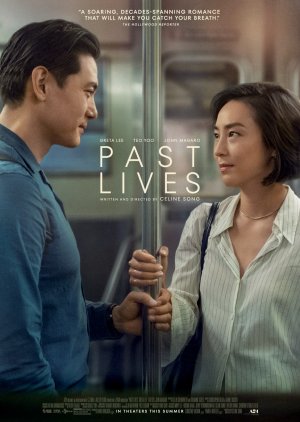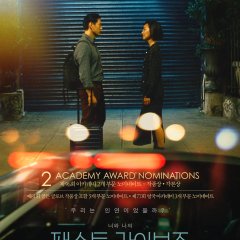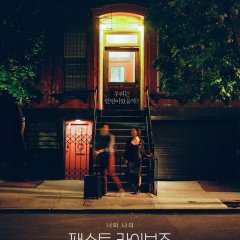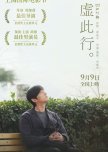 Actor Yoo Teo Wins Trailblazer Award at the 2023 KACF Annual Gala
Actor Yoo Teo Wins Trailblazer Award at the 2023 KACF Annual Gala A 12 ans, Nora et Hae Sung sont amis d’enfance, amoureux platoniques. Les circonstances les séparent. A 20 ans, le hasard les reconnecte, pour un temps. A 30 ans, ils se retrouvent, adultes, confrontés à ce qu’ils auraient pu être, et à ce qu’ils pourraient devenir. (Source : ARP Sélection) Modifier la traduction
- Français
- ภาษาไทย
- Русский
- Português (Brasil)
- Titre original: Past Lives
- Aussi connu sous le nom de: Paeseuteu Raibeujeu , 패스트 라이브즈
- Scénariste et Réalisateur: Celine Song
- Genres: Romance, Drame
Où regarder Nos Vies d'Avant
Purchase (sub)
Purchase (sub)
Distribution et équipes
- Greta LeeNora Moon / Moon Na YoungRôle principal
- Yoo TeoJung Hae SungRôle principal
- John MagaroArthurRôle Secondaire
- Moon Seung AhNa Young [Young]Rôle Secondaire
- Im Seung MinJung Hae Sung [Young]Rôle Secondaire
- Choi Won Young[Nora's father]Rôle Secondaire
Critiques

So English yet so Korean...
U know that one thing that is different about kdramas that you cannot find in other dramas all around the world. That vibe, feel that is hard to define but it is there. Yes, that is what I find the most in this movie. This movie is so Korean yet so English, one can only understand this after watching it. This masterpiece is unforgettable and has a very realistic ending. The eye contact between the leads is my favorite part of this movie.And of course, this is the best movie of the year...
So don't contemplate whether to watch it or not and just watch it.
Cet avis était-il utile?

Cette critique peut contenir des spoilers
About a great service of love AKA a fateful, karmic relationship
"Past Lives" is a US production. Both the author and the two 'Korean' leads have Korean roots, but they did NOT grow up in Korea, nor do they live there. The story is autobiographically inspired and is dramaturgically presented in authentic dialogues on the one hand and selected, visually impressive sets on the other. It is about the aspect of fate (and or Karma) in encounters as well as pondering platonic love. "Past Lives" is indulging into the emotional world of more or less accountable and sensitive reflection of the protagonists, especially of those two extraordinarily mature, fine young men. You rarely see that. Additionally, as far as camera work was concerned, light and perspectives were chosen with care and thus implemented as supplementary actor, sort of. All this is quite wonderful and has already been widely praised. “Past Lives” is thus a movie well worth seeing.This movie presents South Korea and an attitude towards South Korea through the eyes of a South Korean girl who during the 1990s emigrated with her family at the age of 12. She then grew up in Canada, tried her luck as a playwright in New York, married an American, received the green card as side effect, and is ambitiously seeking recognition and success as a writer today. “Past Loves” thus has its positive emphasis on life in the US. The protagonist´s family had turned their back on South Korea. However, besides everything else, that has been already mentioned all over the place, I would say, that "Past Lives" is actually indirectly, in a rather subtle, reserved, unobtrusive way, (almost overlooked and hidden underneath the shiny, promising dominance of the US,) about positive Korean specific qualities, too... Therefore…
Generally, “Past Lives" juxtaposes those two ´worlds´ rather dichotomously. THERE South Korea, the country of origin that was left behind - far away and rather in the background, in the camouflage colors of the military and surrounded by plenty of soju. HERE the USA - reduced to a highly stylized New York (and artist retreat on Long Island), that is bathing in beautiful light and selected colors. In several respects, the United States is presented as the unrivalled better choice.
However, we experience these worlds through the eyes of the protagonist. In Nora's eyes, South Korea stands for conservative narrow mindedness, constraints, lack of freedom (which to some extend is certainly true). The USA, on the other hand, for her is the symbol for freedom, creative power, partake (should, could, might as well…). Eventually, those world views turn upside down. These are prejudicial concepts, both of which are not generally correct, e.g. each not representing the whole truth.
So, KOREAN normal everyday life is portrayed as conservative, shaped by her parents perspective and Nora's childhood impressions of the 1990s: the young democracy, already economically shaken by the Asian crisis. Her parents were artists and as such one way or another most probably influenced by the shaky turbulences of pro-democracy movement of the 1980s. They wanted a fresh start. Yet, what remains in Nora's memories? Very vague memories of school days, of what was said at home, of the striking images that remain impressively to this day. Bottom line: 'Men have to do their military service.' 'People are conservative and unsophisticated.' 'Men dependently live at their parents´ home until marriage.´ ´You can´t proceed in life.´
On the other hand, NORTH AMERICA is the much-cited world of unimagined possibilities. For Nora specifically, it is about a liberal world for the arts. She´s dreaming about her successful future, while the ambitious daughter may actually be living a much wanted life in lieu of her parents, too, to a certain extent. However, this ambitious dream is symbolically captured as an aesthetically abstract decal of New York and the Montauk artist retreat. For Nora, the USA represent a possibility to fulfil her dream of international prizes as an author. Thus, the USA as the center of her life is uncompromising and practically non-negotiable. That's okay and understandable.
This South Korea in the movie has a strong touch of Nora´s own prejudices. Apparently, she never emotionally processed or reflected her relationship to her country of origin. A deficit, which may also narrow down the perspective of the audience. Therefore, I would like to stand up for positive 'Korean merits', which only shine through subtly. In fact, though, they are formative for the characteristic poetic quality of the story. They come along in the person of Hae Sung. Thanks to him Nora can finally hold the key to her emotional freedom in her hands. (Whatever she may do with it now...) Thanks to Hae Sung (so to speak) she got her story and thus her tremendous success as a writer and director, too.
If you don't identify with Nora´s enthusiasm for the US so much, it might be easier to recognize those ´Korean merits´. Hae Sung actually embodies the opposite of what has settled in Nora's mind about South Korea. He stands for a new spirit among the digitalized young generation - even though he is an engineer. She, however, sees what she wants to see, reducing him to military service, close family ties, his clearly structured career and his reserved answers to her questions about marrying or rather not marrying his girlfriend.
Nora overlooks the fact that in his half-hearted answers about marital responsibility he carefully avoids generalizations so as not to overwhelm her with his feelings for her. She overlooks the fact that Hae Sung is indeed the courageous creator of his own world, possibly facing life even more creatively and openly than she dares herself. He chooses to study abroad in China because he wants to learn the language and because it may suit his career, too. He is ambitiously following his career plans, just like she does. Nevertheless, he is open to life´s challenges and ready to completely turn everything upside down. He is actively dealing with what is going on between the two. He prefers not to go for a logical, reasonable marriage. Instead, he takes what his heart tells him, seriously. He wants to sincerely check it out. This makes him vulnerable, too. Actually it was him, who originally went looking for Nora. With courageous creativity he took the chances life had to offer in his own hands. From a practical point of view, HE thought creatively and acted courageously. Nora on the other hand was the one, who, to a certain extent, simply unwinds her program without looking to the left or right.
Back then, when she left South Korea, she just put her feelings away, came up with a new name, learned the new language and left her best friend (and Korea) behind like an old toy. Since then her feelings for her old homeland only slumber unconsciously in her dreams. In her life, which is highly concentrated on her career as an artist, her past and origins have not been given the place they deserve. Hae Sung has to come first to open the door to that forgotten dungeon of her heart.
Still, we don't know whether Nora was able to take the 'little one' in herself by the healing hand - the 12-year-old Na Young, whom she had left alone in the past. All we know is that Hae Sung gave her a chance to reconcile with her roots and a hidden, almost forgotten part of herself. His great service of love was: not forgetting her, not giving up on her; looking out for her; meeting her, too; recognizing her for who she is; reminding her of something else, that she had almost forgotten; and finally letting her be - in an understanding, loving, respectful, ´Korean´ manner. Even if it hurts.
Actually, being himself, he represented another powerful aspect of South Korea, that Nora had so far not realized as such: A finely nuanced, rather emotionally dominated and yet respectful attitude towards life. This in contrast to a rather dichotomously shaped - black/white, good/bad, yes/no -, rather reasonable approach towards life, as it radiates from her 'North America'-concept.
At the heart of "Past Lives" is the probing of the protagonists' feelings for each other. What are those feelings supposed to be? Platonic maybe? Or more than that? And of course the story lives from the attraction of 'What if?'. This careful scanning of a space of potentiality is processed aesthetically cultivated, and stylishly. Respectfully too. Finally there are tears. ´Past Lives´ it is… However, the striking poetic aspect of this story is only made possible (in my opinion) by this very South Korean Hae Sung, who is not afraid to meet the multilayered complexity of emotional depth, confusing affection and difficult challenges in life, and (!) who is also not afraid to back off in respect to a larger context either. Thus he eventually even provided her on the silver platter of his heart with the so much longed for international artistic success...
PS:
Must be the 'In-yeon' they keep talking about throughout the movie...
--------------------------------------------------------
SIDE NOTE:
In-yeon = a fateful, karmic relationship
--------------------------------------------------------
Cet avis était-il utile?
















 1
1






































